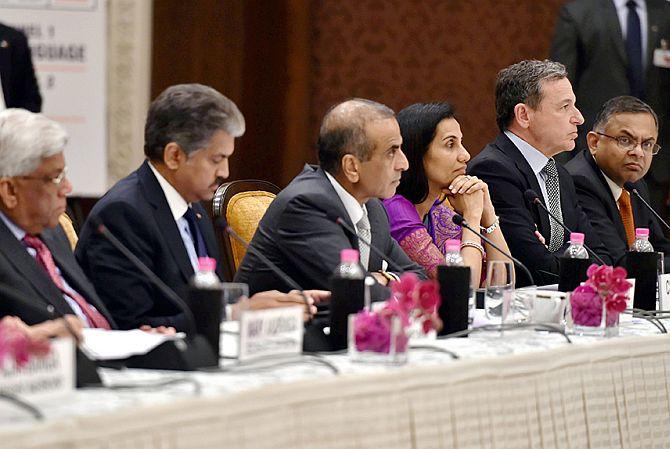Communication from the corner offices of India Inc remains stiff even when the world around has moved on.

After almost a decade of speculation about a possible sell-off, the 127 year-old business daily Financial Times (FT), owned by the London-based Pearson, finally found a buyer in Japanese media firm Nikkei last week.
While the merits of the sale, its valuation, FT's future under the new owner and what the sale of a venerable title means for the global media are being parsed over by commentators worldwide (Strategic Intent), what struck me was the reaction of Pearson's chief financial officer, Robin Freestone, in the run-up to the sale.
"Do we have to own them?"
Freestone posed at an investor conference about FT, The Economist and a few other non-education publishing brands in Pearson's portfolio.
"No. But actually it's one of those brands which, you know, you don't sell lightly," said the outgoing CFO.
Now that's as candid as a person with fiduciary responsibilities can get. He articulated a commonly known position of his firm, where anything non-education was non-core, and hence dispensable, and yet stuck to FT's big-brand bargaining position of not selling "lightly".
Almost a decade ago, when FT was more integral to Pearson's scheme of things, the then chief executive Marjorie Scardino had famously quipped the pink-paged title would be sold "over my dead body".
Now mergers, acquisitions, sale of assets, fundraising, strategic intent and competitive position in the market are part of business life everywhere.
But when it comes to Indian firms and their top managers why do you either get anodyne statements like "we do not comment on market rumours" and "no comments", or, worse, a deafening silence on sensitive issues? Is it a cultural issue of Indians taking themselves too seriously and/or a lack of communication flair?
Well, it's not that in matters of business talk Indian CEOs lack the sharpness or brevity of their Western counterparts, but sadly all that is reserved for off-the-record tête-a-tête with reporters and other stakeholders. As soon as the curtains go up at a press conference, investor call or shareholder meeting, they simply clamp down.
The general drift of on-the-record messaging is that everything is all right, we're a great company led by a greater bunch of managers and a lot of backslapping. And when something goes wrong, first there is a tendency to not see or accept it, followed by attempts to belittle the issue or outright denial.
It is as if they're afraid to speak the truth or their mind. Rare is the candidness of a Vishal Sikka, Infosys CEO, who refused to get carried away by the market's and the media's euphoria over his firm's better-than-expected first quarter results announced last week, and said, "Too much focus on one quarter is not a good idea. This is the first quarter in a long journey."
And rarer still is a Ratan Tata who publicly patted competitor Mahindra & Mahindra and berated his own firm Tata Motors at the latter's annual general meeting three years ago.
"I have great respect for what M&M has been able to do… I think we have a great deal of introspection to do as to why M&M should be ahead of us and us (doing the) catching up," Tata, then non-executive chairman, said at an annual general meeting.
Sikka and Tata did not, in any way, give away any company strategy piece out by being frank and honest, and nor are their companies any better or worse off for it.
Only that by being forthright, they upped their firms' communication quotient - an ephemeral thing that no business matrix captures, and yet so critical to develop leaders of sectors and people - with the stakeholders.
And it is not just the Anglo-Saxon manager, or exceptions like Sikka and Tata, who Indian executives need to look up to, to start loosening up a bit while talking about their firms.
They just need to eavesdrop into consumer, employee and investor interactions on social media on everything - from company's brands, labour policies, stock price to corporate citizenry - to realise the openness and honesty that is increasingly characterising such conversations.











